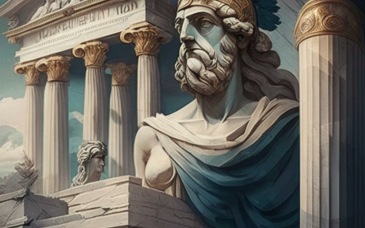Ariston, a name of Greek origin, has been around for centuries, carrying with it a rich history and diverse meanings. Its etymology can be traced back to the Greek word "aristos," meaning "noblest" or "best." This noble connotation has made Ariston a popular name among Greek families for generations.
Ariston in Ancient Greece
In ancient Greece, Ariston was a common name among both men and women. It was often given to children born into noble families, symbolizing their privileged status and high aspirations. Several notable figures in Greek history bore the name Ariston, including Ariston of Chios, a Stoic philosopher, and Ariston of Sparta, the 15th Eurypontid king of Sparta.
Ariston in Modern Times
While the name Ariston has declined in popularity in Greece, it has gained traction in other parts of the world, particularly in Italy and the United States. In recent years, there has been a renewed interest in the name, perhaps due to its elegant and sophisticated sound.
The Multiple Meanings of Ariston
Beyond its literal meaning of "noblest" or "best," Ariston can also be interpreted in more spiritual and philosophical ways. It can symbolize the pursuit of excellence, the striving for moral and intellectual perfection. It can also represent the ideal of a well-rounded individual, someone who embodies both virtue and wisdom.
The Enduring Appeal of Ariston
The name Ariston continues to resonate with people today, its ancient roots and noble connotations offering a sense of tradition and integrity. It is a name that reflects aspirations for greatness, the desire to live a life of purpose and meaning. For those seeking a name that is both classic and distinctive, Ariston is an excellent choice.
The Name Ariston Across Cultures
The name Ariston has also been adapted into other languages, such as Latin (Ariston), Italian (Ariston), French (Ariston), and Spanish (Ariston). In these languages, the name retains its meaning of "noblest" or "best," making it a popular choice for parents seeking a name with a strong and positive connotation.
The Enduring Legacy of Ariston
As a name with a rich history and diverse meanings, Ariston has stood the test of time. It is a name that continues to inspire and connect people across cultures and generations. For those seeking a name that embodies noble ideals and aspirations for greatness, Ariston is a timeless choice.

